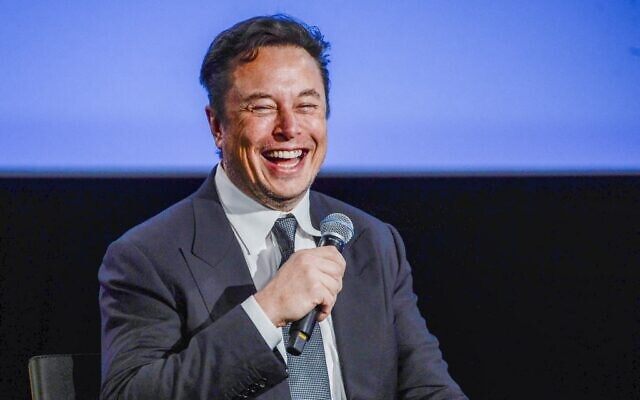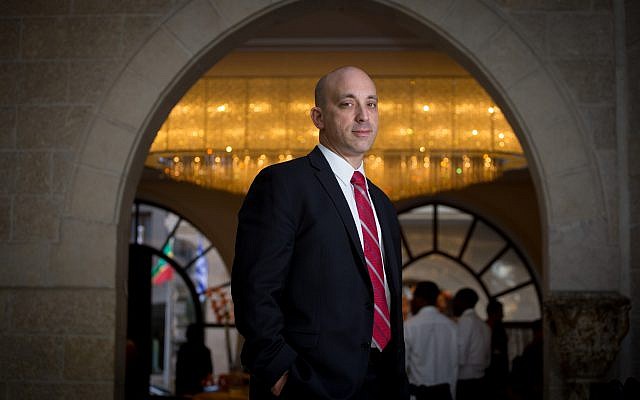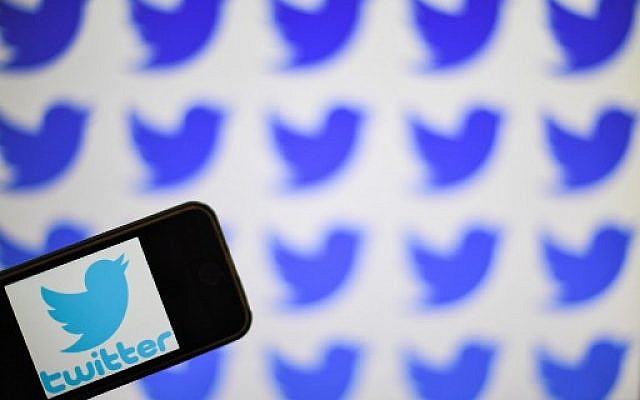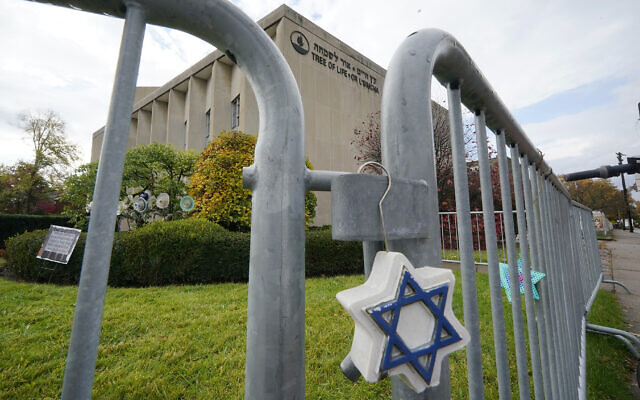Developments at social media platform ‘have been troubling,’ says ADL CEO Jonathan Greenblatt, as Jewish groups mark synagogue shooting anniversary with warnings over hate speech

The Anti-Defamation League expressed alarm over billionaire Elon Musk’s takeover of Twitter on Thursday, warning that it could turn into a hotbed of hate and extremism if content moderation is dialed down.
Musk took charge of the platform late Thursday, appearing to wrap up the $44 billion deal just hours before a court-imposed deadline to make good on his offer to purchase the social media giant after bristling over restrictions on misinformation and hate speech.
The purchase came as Jewish groups marked the four-year anniversary of the deadly Tree of Life synagogue shooting in Pittsburgh, noting that it came with antisemitism once again in the headlines, due to rapper Kanye West’s anti-Jewish comments on social media.
Greenblatt said in a statement that Musk’s welcoming of West back to Twitter earlier this month, after the rapper’s Instagram account was suspended over anti-Jewish posts, had been “troubling.”
“I was cautiously optimistic that Elon Musk would take the concerns of civil society to heart, but developments over the past two weeks have been troubling,” ADL head Jonathan Greenblatt wrote in a statement posted moments after reports emerged that Musk had taken over.
“This includes, but is not limited to, Mr. Musk warmly welcoming back Ye to Twitter after Ye made antisemitic comments on Instagram and was booted off the platform. I worry that this will be indicative of Mr. Musk’s approach to content moderation on the platform,” he added.

Musk welcomed West, who also goes by Ye, back to Twitter on October 8, a day after he was suspended from Instagram over content the platform called “anti-Jewish.”
Later that day, West tweeted that he was going to go “death con 3 On JEWISH PEOPLE” and was removed from Twitter as well. His Instagram and Twitter accounts were re-instated earlier this week after he apologized for the tweet.
Musk has repeatedly complained about Twitter’s content moderation, terming them restrictions on free speech, and is thought to be planning to remove most curbs on speech, and allow former president Donald Trump to reinstate his Twitter account. Trump, who started his own platform, recently posted that American Jews need to “get their act together” before “it is too late!” comments that were widely condemned as antisemitic.
A note from Musk to Twitter advertisers Thursday appeared to mark a shift away from a push for unbridled speech, saying Twitter “cannot become a free-for-all hellscape where anything can be said with no consequences.” He said he wanted the platform to be “warm and welcoming to all.”
Greenblatt expressed optimism over the statement, but noted that “ultimately Mr. Musk will be judged by his actions, not his words.”
Musk’s message appeared to be aimed at addressing concerns among advertisers — Twitter’s chief source of revenue — that his plans to promote free speech by cutting back on moderating content will open the floodgates to more online toxicity and drive away users.

“The reason I acquired Twitter is because it is important to the future of civilization to have a common digital town square, where a wide range of beliefs can be debated in a healthy manner, without resorting to violence,” Musk wrote in an uncharacteristically long message for the Tesla CEO, who typically projects his thoughts in one-line tweets.
He continued: “There is currently great danger that social media will splinter into far right-wing and far left-wing echo chambers that generate more hate and divide our society.”
Greenblatt expressed worries that Musk’s takeover “may accelerate what ADL has seen repeatedly: the pushing out of marginalized communities from social media.”
“As with Telegram, Gab, Parler, Rumble, and other platforms that refuse to address incitement and slander in the name of free speech, such platforms have become hotbeds for radicalism and hate,” he said, referencing platforms used by far-right extremists, including neo-Nazis, because they lack the content restrictions used by larger social media platforms.
Gab in particular rose to prominence when it was used by white supremacist Richard Bowers to post a manifesto shortly before he stormed the Tree of Life synagogue in Pittsburgh’s Squirrel Hill neighborhood on October 27, 2022, killing 11 worshippers in the worst-ever antisemitic attack on US soil.
As survivors and others gathered to memorialize the dead Thursday, Jewish groups marking the anniversary noted that West’s remarks were indicative of growing antisemitic rhetoric fueled by social media.

“It is horribly sad that this week as our community tries to remember and heal, we are retraumatized with antisemitism once again making the headlines,” said a statement from Laura Cherner, director of the Community Relations Council of the Jewish Federation of Greater Pittsburgh.
“It is horrifying to see someone with such a large platform casually espouse antisemitic conspiracy theories with such conviction and little regard for the violent impact his words may have,” she added.
Holly Huffnagle, US director for combating antisemitism at the American Jewish Committee, noted that West had made other troubling comments in the past that drew little backlash, such as associating Jews with greed and secret power, as well as a form of radical Black nationalism shared with the attackers behind a deadly 2019 shooting at a kosher market in New Jersey.
Rabbi Rick Jacobs, president of the Union for Reform Judaism, said West’s words had come amid a rise in antisemitism “from the right and the left and pretty much across the spectrum.”
The increase is “in not only rhetoric, but in physical attacks on Jews and the Jewish community,” he said.
“To have someone like Kanye West spewing out the hate, the vitriol and the really pure form of antisemitism is extraordinarily impactful and painful and needs to have strong responses,” Jacobs added.
As reported by The Times of Israel
